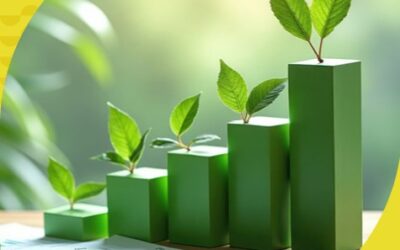In 2025, Green Procurement, i.e. the sustainable purchase of goods and services, will continue to be crucial for promoting sustainability, but organisations will face significant challenges and new opportunities to accelerate change.
Green Procurement opportunities
- Incentives and favourable public policies. European and national policies, such as the European Green Deal, will continue to promote green procurement with tax incentives and funding. Public administrations, in particular, will have access to funds for sustainable projects, incentivising the adoption of green solutions.
- Technological innovation to improve procurement Technology is playing a crucial role in Green Procurement. Solutions such as artificial intelligence and blockchain will help track the environmental impact of products, making purchasing more transparent and efficient. Digital platforms will simplify the management of sustainable procurement, also reducing operational costs.
- Growing demand for sustainable products Consumers are becoming increasingly environmentally conscious, and this trend is prompting companies to respond with an increased supply of environmentally friendly products. Companies that embrace sustainability not only respect the environment, but also gain a competitive advantage by responding to a growing demand for green solutions.
- Strategic public-private partnerships. The future of Green Procurement will see increasing cooperation between the public and private sectors. Institutions and companies will work together to develop joint solutions, such as in smart cities or green logistics, contributing to the reduction of emissions and more efficient use of resources.
The obstacles of Green Procurement
- The higher initial cost. A significant obstacle for many companies is the higher initial cost of green products compared to traditional ones. Although the long-term benefits are obvious – such as energy savings and waste reduction – justifying the initial investment can be difficult, especially in times of economic uncertainty.
- Scarce availability of sustainable suppliers. Not all companies are ready to meet the sustainability criteria required by Green Procurement. The difficulty in finding suppliers that meet green standards can slow down the adoption of green policies, particularly for small and medium-sized companies that do not have the resources to adapt quickly.
- Resistance to change. Organisations often encounter internal resistance when it comes to changing their procurement processes. Transitioning to more sustainable practices may seem complex and costly, but overcoming this mentality is essential to making long-term progress.
- Evolving regulations and standards Environmental regulations are constantly evolving and vary between countries and regions. Companies operating internationally may find it difficult to maintain a uniform Green Procurement strategy, having to constantly adapt to changing laws and regulations.
In 2025, therefore, Green Procurement will continue to be a key pillar for the sustainability of organisations. The opportunities are numerous: public incentives, technological innovations, a growing demand for sustainable products and the strengthening of public-private partnerships. However, the challenges – such as upfront costs, scarcity of sustainable suppliers, resistance to change and complex regulations – require commitment and vision. Overcoming these obstacles will create a greener and more prosperous future for all.




